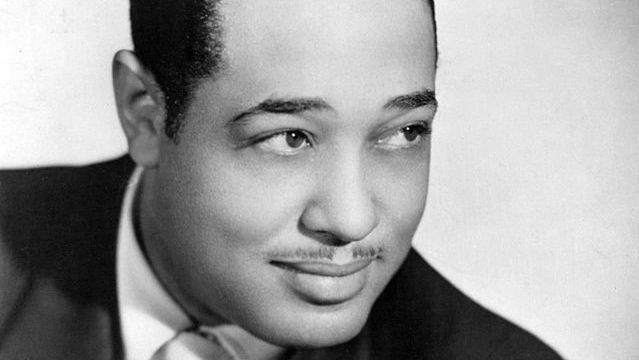Duke Ellington, born Edward Kennedy Ellington on April 29, 1899, in Washington, D.C., was a pioneering figure in American music whose impact on jazz and beyond is immeasurable. His life and career spanned the better part of the 20th century, leaving an indelible mark on the cultural landscape.
From an early age, Ellington showed a keen interest in music. He began studying piano at the age of seven, and by his teens, he was already performing professionally. Ellington’s early influences included ragtime and stride piano players, but it was his unique style and innovative approach to composition and orchestration that set him apart.
- Early Musical Prodigy: Duke Ellington, born Edward Kennedy Ellington on April 29, 1899, in Washington, D.C., displayed a natural aptitude for music from a young age. His parents encouraged his musical pursuits, and he began learning piano around the age of seven.
- Nicknamed “Duke”: Ellington acquired the nickname “Duke” in his youth due to his elegant demeanor. He carried this moniker throughout his life and career, becoming known simply as “Duke” to fans and colleagues alike.
- Pioneering Bandleader: Ellington’s career as a bandleader was legendary. He formed his first band, The Duke’s Serenaders, in his late teens, and over the years, he developed and refined his signature sound, eventually leading one of the most famous jazz orchestras in history, the Duke Ellington Orchestra.
- Innovator of Jazz: Duke Ellington was a true innovator in the world of jazz. He seamlessly blended elements of blues, classical music, and popular songs into his compositions, creating a distinctive style that defied categorization and greatly influenced the development of jazz music.
- Master Composer: Ellington was an incredibly prolific composer, producing thousands of compositions throughout his lifetime. Many of his works, such as “Mood Indigo,” “Take the ‘A’ Train,” and “It Don’t Mean a Thing (If It Ain’t Got That Swing),” have become jazz standards beloved by audiences worldwide.
- Collaborations with Greats: Throughout his career, Ellington collaborated with numerous other musical legends, including Louis Armstrong, Ella Fitzgerald, and John Coltrane. These collaborations not only produced memorable recordings but also further solidified Ellington’s status as a titan of jazz.
- Trailblazer for Civil Rights: Ellington’s impact extended beyond music; he was also a prominent figure in the civil rights movement. He used his platform to advocate for racial equality and often addressed social issues in his music, such as in his groundbreaking composition “Black, Brown, and Beige.”
- Recognition and Awards: Ellington received numerous accolades and honors during his lifetime, including multiple Grammy Awards, a Pulitzer Prize Special Citation, and the Presidential Medal of Freedom, the highest civilian honor in the United States, awarded posthumously by President Richard Nixon in 1969.
- Global Ambassador of Jazz: Duke Ellington’s influence spread far beyond the borders of the United States. He toured extensively around the world, bringing jazz to international audiences and earning acclaim as a global ambassador of the genre.
- Enduring Legacy: Even after his passing on May 24, 1974, Duke Ellington’s legacy continues to thrive. His music remains as vibrant and influential as ever, inspiring countless musicians and captivating audiences with its timeless beauty and innovation. Ellington’s impact on the world of music is truly immeasurable, cementing his place as one of the greatest musicians of the 20th century.


Comments are closed